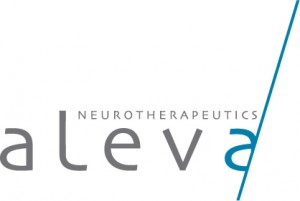Archive: Company News
Company News: Aleva Neurotherapeutics Appoints Dr. Philippe Dro to its Board of Directors

– Seasoned entrepreneur brings 20 years of Life Science industry experience –
Aleva Neurotherapeutics, a leading company developing next-generation implants for Deep Brain Stimulation (DBS) in major neurological indications such as Parkinson´s disease, today announced the appointment of Dr. Philippe Dro to its Board of Directors.
Dr. Dro brings 20 years of entrepreneurial experience in the life science industry, including a pivotal role in executing strategic transactions at several biotech and medtech companies. Until recently, he was Chief Executive Officer and a Member of the Supervisory Board of GlycoVaxyn AG, a vaccine company that was acquired by GSK earlier this year. Prior to this, he served as Chief Executive Officer and Chairman of the Board of Endoart S.A., a medtech company developing telemetry-driven implants for cardiac disease and obesity that was sold to Allergan, Inc. From 1999 to 2003, he was Chief Financial Officer and Head of Business Development at drug discovery company Axovan AG, which was acquired by Actelion in November 2003. Prior to that, he held various position at Novartis, Skyepharma, and Antares Pharma.
Dr. Dro received a doctorate in Pharmacy (Pharm D) from the School of Pharmacy of the University of Grenoble, France, and holds a joint MBA from Ecole Superieure de Commerce de Lyon, France, and Cranfield School of Management, United Kingdom.
Company News: Merus Prevails in Inequitable Conduct Case Against Regeneron
![]()
– Court ruling further strengthens Merus’ freedom to operate in using transgenic mice for therapeutic human antibodies
Merus, a leader in developing best-in-class bispecific antibody therapeutics to treat cancer patients, today announced that it won its inequitable conduct trial against Regeneron. In a decision issued on Thursday, August 6, Judge Katherine B. Forrest of the U.S. District Court for the Southern District of New York indicated that Regeneron engaged in inequitable conduct in connection with obtaining U.S. Patent No. 8,502,018. This marks the third counterclaim upon which Merus has prevailed in this litigation, initiated by Regeneron. In December 2014, Regeneron conceded that Merus does not infringe any claim of the ‘018 patent, and that the patent is invalid in view of the Court’s prior decision on claim construction. Given the Court’s ruling on August 6, Regeneron’s patent has now been adjudged to be not infringed, invalid and unenforceable for being procured by inequitable conduct.
In that decision, the Court noted that Regeneron’s agents had withheld material information from the United States Patent Office (USPTO) during prosecution of the ‘018 patent. The Court further concluded that an adverse inference that Regeneron’s employees intentionally mislead the U.S. Patent Office was appropriate and “that Regeneron engaged in inequitable conduct in connection with the prosecution of the ‘018 patent.”
Company News: PNAS Paper Details Efficacy of a Potent, Fully Human Antibody for the Treatment of MERS

– First human-derived antibody which is suitable for prophylaxis, post-exposure prophylaxis, and treatment of MERS
– Therapeutic compound under development by Humabs BioMed on a non-profit basis
Humabs BioMed SA, a leading Swiss antibody therapeutics company, today announced that Proceedings of the National Academy of Sciences (PNAS) has published a paper describing the isolation and characterization of a potent antibody from memory B-cells of a patient recovering from an infection with coronavirus (CoV) and the resulting Middle East Respiratory Syndrome (MERS). The antibody, which was isolated from the infected individual two years ago, is active against all three clinically relevant MERS-CoV strains and against a site that is conserved in all MERS strains, including the strain responsible for the latest outbreak in South Korea. Humabs has developed a production cell line allowing – depending on regulatory clearance – the antibody either to be made available on the basis of a compassionate use program or to enter Phase I trials within a few months.
The human monoclonal antibody, code-named LCA60, binds to a novel, evolutionary highly conserved site on the Coronavirus spike protein. Thereby, it interferes with the binding of the virus to the receptor CD26 on target cells of the respiratory tract. LCA60 is highly effective both in prophylaxis and therapy in relevant preclinical models.
The initial screening, discovery and isolation of the anti-MERS LCA60 antibody was a joint effort of Public Health England (PHE, London, UK), the Institute for Research in Biomedicine (IRB, Bellinzona, Switzerland) affiliated to the Università della Svizzera italiana, the Department of Critical Care of the St Thomas’ Hospital (London, UK) and Humabs BioMed. Using the Cellclone technology developed by Prof. Antonio Lanzavecchia, which Humabs has exclusively licensed from the IRB, it took only five weeks to functionally select, clone and sequence LCA60 from the initial screening of human B cells derived from a convalescent patient, and an additional three months to develop a stable CHO cell line for manufacturing.
For the further characterization and testing of LCA60, Humabs BioMed collaborated with the University of Iowa (Iowa City, IA, USA) and the University of North Carolina at Chapel Hill, (Chapel Hill, NC, USA). The antibody will be made available on a non-profit basis.
“Our antibody was tested against 3 relevant strains and, according to our analysis on the epitope, it is active against all MERS isolates, including the last ones from the South Korean outbreak,” said Davide Corti, CSO of Humabs. “This last outbreak highlighted the importance of the spread of the virus in the hospital settings followed by a quarantine of large number of people at risk of exposure, so it is important to note that our antibody can also be administered pre-exposure to protect clinical personnel and caregivers.”
“Our anti-MERS antibody provides a good example of the rapid pathway we have established for the generation of effective antiviral therapies against emerging viruses,” said Alcide Barberis, CEO of Humabs BioMed. “This is of great importance in combatting the outbreak of epidemics of life-threatening diseases within a short time frame. This anti-MERS antibody could be developed for compassionate use as well as for stockpiling and made available at no costs to patients in the case of an epidemic. We are currently seeking financial support for GMP manufacturing and early clinical development. We hope charities will step in for bringing this compound to MERS patients and individuals at risk of infections.”
Company News: Towards a Best Practice Approach in Cancer Immunotherapy: Cancer Vaccines Gain Momentum

– Review in The Journal of Clinical Investigation points the way forward for therapeutic cancer vaccines
ISA Pharmaceuticals B.V., a clinical-stage immunotherapy company focusing on rationally designed immunotherapeutics against cancer and persistent viral infections, today announced the publication of a comprehensive scientific review[1] of therapeutic cancer vaccines, outlining the best available strategies for successfully eradicating tumors with immunotherapy. The article, which was published in The Journal of Clinical Investigation, was authored by a group of scientists from Leiden University Medical Center (LUMC); lead author is Cornelis Melief, professor at LUMC and CSO of ISA Pharmaceuticals. The researchers point out that considerable progress has been made with therapeutic cancer vaccines, resulting in prolonged patient survival, but also conclude that most strategies have not resulted in objective, durable tumor regressions.
Looking at numerous studies, the authors have identified crucial success factors for better clinical outcome in cancer immunotherapy by vaccination:
- Sufficient antigen concentration in dendritic cells,
- an effective route of administration,
- the use of an adjuvant that can stimulate dendritic cells,
- the choice of combination therapy and, above all,
- selection of the right antigen.
“With few exceptions, the design of many cancer vaccines has fallen short of important parameters for success,” said Prof. Melief. “As an example, it is now clear that cancer vaccines need co-treatment and cannot be expected to work as a monotherapy. In peptide-based immunotherapies, we now know that only concentrated antigen sources such as DNA, RNA or synthetic long peptides can raise robust CD4+ and CD8+ T cell responses. But it is also very clear today that the best results can only be achieved by choosing antigens that are unique to the cancer, thereby avoiding central immunological tolerance.”
He noted that many immunotherapies for non-viral cancers have targeted antigens that are shared by tumor cells and normal cells, albeit with different levels of expression. However, the T cells induced by these antigens rely on the T cell repertoire left after the induction of central immune tolerance in the thymus. Therefore, the available repertoire is depleted of high-avidity T cells, resulting in suboptimal immune responses.
“This is different in cancers induced by viruses,” added Ronald Loggers, CEO of ISA Pharmaceuticals. “We are therefore seeing impressive outcomes with our lead candidate ISA101, which targets cancers induced by human papillomavirus infection. In the light of recent findings, reviewed in the JCI article, we will also focus on neo-antigens, i.e. novel antigens arising from mutations, for the treatment of non-viral cancers. Like the viral antigens, the neo-antigens are not subject to central immunological tolerance of a thymic nature, and therefore vaccination against neo-antigens fosters T cells with strong cancer killing capacity. As they are patient-specific, our synthetic long peptide (SLP®) approach is well suited for the design of personalized immunotherapies against neo-antigens.”
He added that the benefits of the SLP® platform include robust CD4+ and CD8+ T cell response induction, high specificity, absent toxicity, lasting efficacy and short time-to-patient.
Loggers concluded: “The validity of our SLP® platform is expected to be further strengthened by early 2016, when immune response data and early clinical observations will be evaluated from the dose-finding phase of ISA’s Phase 1/2 CervISA trial. In this study, late-stage HPV16 positive cervical cancer patients are treated with ISA101 in combination with standard of care chemotherapy. Recruitment is on target and scheduled to be completed during the fourth quarter of 2015.”
[1] Melief CJM, van Hall T, Arens R, Ossendorp F, van der Burg SH. Therapeutic Cancer Vaccines. J Clin Invest. 2015;125(8). doi:10.1172/JCI80009
